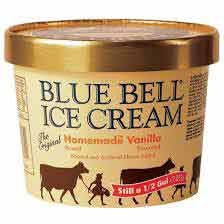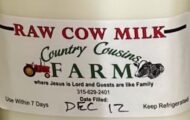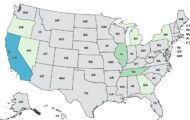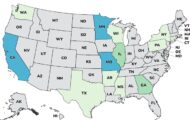After its ice cream was linked to a deadly Listeria outbreak, Blue Bell Creameries has agreed to new food safety rules set by the Texas Department of State Health Services (DSHS). The company must take all of the steps outlined in the agreement before it can begin selling ice cream again Bell Bell’s production facilities were temporarily closed after Listeria monocytogenes in its ice cream products.
 According to the terms of the agreement, Blue Bell has agreed to: Retain an independent sanitation and/or microbiology expert who can help the company assure that the plant and the equipment are properly prepared, maintained and operated to safely produce products that do not contain Listeria monocytogenes. Retain all test results and make them available to DSHS upon request. Notify DSHS within 24 hours of receiving a presumptive positive test result for Listeria monocytogenes found in ingredient or finished product samples. Allow DSHS full access to the Brenham facilities to collect ingredient, finished product, or environmental samples. Conduct root cause analyses that try to identify potential or actual sources of contamination and provide them to DSHS for review. Ensure that the company’s Pathogen Monitoring Program (PMP) for Listeria, includes a planned response for positive Listeria tests. for Listeria species when and where found.
According to the terms of the agreement, Blue Bell has agreed to: Retain an independent sanitation and/or microbiology expert who can help the company assure that the plant and the equipment are properly prepared, maintained and operated to safely produce products that do not contain Listeria monocytogenes. Retain all test results and make them available to DSHS upon request. Notify DSHS within 24 hours of receiving a presumptive positive test result for Listeria monocytogenes found in ingredient or finished product samples. Allow DSHS full access to the Brenham facilities to collect ingredient, finished product, or environmental samples. Conduct root cause analyses that try to identify potential or actual sources of contamination and provide them to DSHS for review. Ensure that the company’s Pathogen Monitoring Program (PMP) for Listeria, includes a planned response for positive Listeria tests. for Listeria species when and where found.
Before it initially re-starts production, Blue Bell must notify DSHS two weeks in advance so health officials can conduct a full assessment of the company’s progress and test results. Trial production runs of ice cream that will be tested by both DSHS and the company. All products must consistently test negative before they can be distributed to the public. The “test and hold” program for all finished products will stay in place for one year.
The agreement also requires that Blue Bell make the following available at the request of DSHS: The plant’s deep cleaning and on-going sanitation policies, procedures and records; staff training curriculum and records, plans for plant modifications made to control for Listeria, start-up procedures prior to initiating production runs for any purpose, up to and including the manufacture of product for entry into commerce.
Going forward, Blue Bell agrees that all of its ice cream will be made according to Sanitation Standard Operating Procedures (SSOPs); Good Manufacturing Practices (GMPs); a Pathogen Monitoring Program (PMP) for Listeria Monocytogenes (Lm), which includes testing; and a Hazard Analysis and Critical Control Points (HACCP) plan.
State health inspectors, “will be on site at the Brenham plant regularly to evaluate test results and monitor the trial runs.” And will also are review deep-cleaning procedures and ongoing sanitation processes at the plant.
The outbreak could have a broader impact on frozen dessert manufacturing facilities. DSHS has been working with state and federal experts to identify changes that may be needed in the regulation and oversight of such facilities to strengthen regulations to protect public health.




